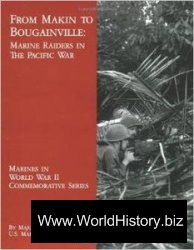Apart from the study of Tsigakou, where Leake is singled out for his remarkable ability and general neutrality to popular prejudices of his age, we might note the discussion of Leake and his topographical studies by Witmore (2004).
(p. 4a) The broadening of Classical archaeology during the twentieth century into a greater concern with everyday material culture
Influences from European prehistory often filtered into Classical fieldwork, stimulating research into the homes of ordinary people and their not so beautiful pots and pans.
(p. 4b) The impact of Renfrew and Snodgrass in the 1980s in introducing "New Archaeology" to Classical archaeologists
These two influential scholars called for the isolation of Greek archaeology to be broken down, so as to benefit from the surge of developments in method and theory within the general discipline of archaeology, known as "processual archaeology" or "New Archaeology." Significantly both scholars were associated with pre-Classical research in Greece, where influences from general archaeology had always been influential.
(p. 4c) The rise of the "post-processual" movement in general archaeological theory
Post-processualism is a reaction to the more doctrinaire aspects of "New" or "processual" archaeology (Greene 2002). Admittedly this development is limited to some university sectors of anglophone Western Europe, with exceptions on a more global scale, yet for Greek archaeology the influence of post-processualism (fundamentally a translation of postmodernism in the humanities: cf. Bintliff 1993, Greene 2002) is more immediately relevant and beneficial.
(p. 4d) The rise of regional surface survey programs in late twentieth-century Greek archaeology
Many survey programs deploy complementary specialisms to the archaeology, such as geomorphology, botany, social anthropology, and computer geography (GIS or geographical information systems), as well as specialists in historical texts, to provide as total a picture as possible of the often small regions under the focus of a long-term historical analysis. There has been occasional criticism based on post-colonial thought, that foreign teams studying Greek regional history are perpetuating a form of superior intervention into local life, or that a supposed scientific reconstruction is little founded in the basic data, but the integration of Greek scholars and a sensitivity to local history and opinion, allied with the recognition of the gaps in our understanding of surface remains, have hopefully over time acknowledged and tackled these potential failings (cf. Fotiadis 1995, Witmore 2004).




 World History
World History









